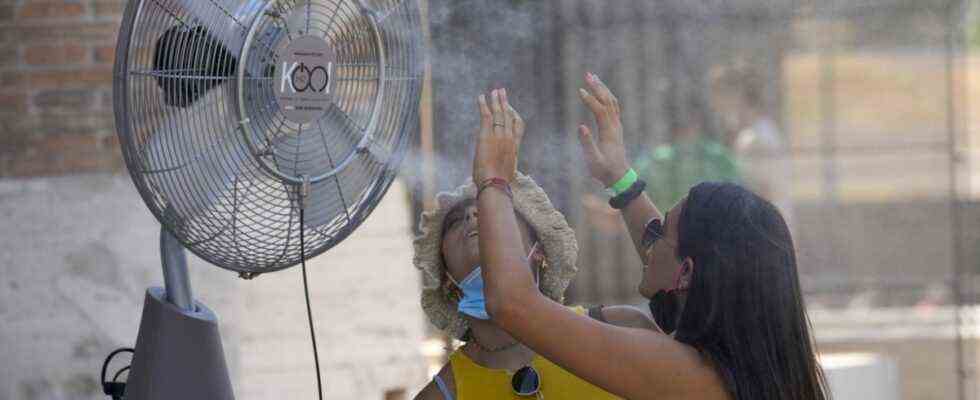The German language does not yet have a word for the opposite of frostbite, for death from a searing, merciless heat. In times of the climate crisis, this way of dying is no longer an exceptional event: in 2019, extremely high temperatures are likely to have cost the lives of more than 350,000 people worldwide. The number comes from a just in Trade journal Lancet appeared modeling, which researchers use as an opportunity to demand stronger adaptations to the consequences of climate change.
It is very clear that everything must be done to curb further heating of the planet. But it is also certain that even with the greatest effort, some of the consequences of climate change can no longer be averted. In its latest report, the Intergovernmental Panel on Climate Change predicts that global warming – regardless of how emissions develop – will increase by at least 1.5 degrees over the pre-industrial period in the next two decades. Record temperatures are becoming more frequent, more intense and longer.
The bad habit of only offering water in restaurants for money must stop
In order to protect people from such extreme events costing them their lives, major adaptations, especially urban planning, are necessary: more green spaces, trees and less traffic in the city centers are part of it. And yet it is also important not to forget the simpler protective measures that can be implemented quickly.
For example, free drinking water belongs in public spaces. Water dispensers should be standard in shops and establishments – and cafes should say goodbye to the bad habit of selling overpriced designer soda to those who are severely thirsty. Free tap water must always be on the table.
Wherever possible, working people should be allowed to move their work to the cooler hours. The siesta is not a luxury of lazy vacation days, but a sensible means of avoiding dangerous exertion during the high temperatures of the day.
This also means that shops and service providers have to adapt their opening times flexibly to the temperatures. It’s not that difficult: If store opening times for Christmas shopping or a soccer World Cup are extended, this option must be open to dangerous situations such as extreme temperatures.
Fans should be the norm in waiting rooms and other public spaces. Strict clothing regulations for employees, such as dark uniforms on trains and local transport, should be abolished at least for the hot weeks.
To avoid any misunderstandings: none of these are comprehensive solutions for the climate crisis, they are by no means sufficient. But they are a beginning that makes it more tangible in everyday life what many people apparently have not understood: the situation is deadly serious.

